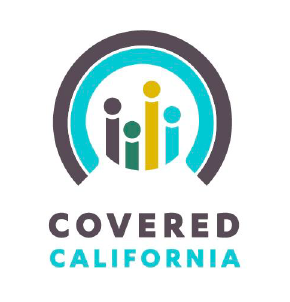Poor in CA whipsawed by disorganized health agencies
 Poor people in California — starting with individuals who make less than $16,200 — are eligible for subsidized health care from Medi-Cal. About 12 million people are enrolled in the state program. Individuals who make from $16,200 to about $60,000 are usually eligible to buy subsidized health insurance from Covered California, the Golden State’s version of Obamacare. There are 1.2 million people who have bought such policies.
Poor people in California — starting with individuals who make less than $16,200 — are eligible for subsidized health care from Medi-Cal. About 12 million people are enrolled in the state program. Individuals who make from $16,200 to about $60,000 are usually eligible to buy subsidized health insurance from Covered California, the Golden State’s version of Obamacare. There are 1.2 million people who have bought such policies.
But research by the Center for Health Reporting shows that coordination between the two state programs is so weak that tens of thousands of Californians routinely lose health coverage as their incomes fall or rise. The problem is so acute that an anti-poverty group is blasting the state government:
State officials say the transition between Covered California and Medi-Cal is supposed to be “seamless.” …
“There’s not a seamless transition. There’s not someone helping them figure out who to call or how to navigate the system,” says Jen Flory, senior attorney at the Western Center on Law and Poverty. “Frankly, it’s not working correctly.” …
The UC Berkeley Center for Labor Research and Education estimates that 16.5 percent of Medi-Cal enrollees will become eligible for Covered California during the course of a year because of income increases.
On the other hand, about one in five people with subsidized Covered California plans will drop into Medi-Cal or other public coverage, the center estimates.
If you have a Covered California plan, you may be bumped into Medi-Cal when the agency attempts to verify your eligibility, says spokesman Dana Howard.
This could happen midyear, when Covered California checks sources such as federal tax records to determine whether your income matches the estimate you gave when you enrolled. Last year, about 85,000 people were determined eligible for Medi-Cal during this process, he says.
Story has a familiar villain: computer problems
 This poor service isn’t largely the result of bureaucratic indifference or incompetence. It’s driven by the same problems with information technology that have caused headaches for the state’s paymaster (the controller’s office), CalPERS, the DMV, the Department of Consumer Affairs and the agencies overseeing prisons, courts, social services and the distribution of unemployment checks. As the Center for Health Reporting notes:
This poor service isn’t largely the result of bureaucratic indifference or incompetence. It’s driven by the same problems with information technology that have caused headaches for the state’s paymaster (the controller’s office), CalPERS, the DMV, the Department of Consumer Affairs and the agencies overseeing prisons, courts, social services and the distribution of unemployment checks. As the Center for Health Reporting notes:
Covered California and Medi-Cal computer systems “aren’t talking to each other very well. The county will say one thing and Covered California will say another thing,” says Cori Racela, associate director of policy and litigation for Neighborhood Legal Services of Los Angeles County. “It’s the consumer who falls between the cracks.”
Many consumers don’t find out they’ve been incorrectly switched until afterward, says Sonal Ambegaokar, senior attorney at the National Health Law Program.
“There’s often a gap in coverage before they can get reenrolled,” she says. “During that time, they have medical needs that are not being addressed.”
IT snafus afflict both health agencies
So why haven’t the two agencies responsible for the health coverage of 13 million-plus Californians done a better job of coordinating their computers? Probably because both have struggled with their computers in handling their primary responsibilities.
Last April, Medi-Cal had a staggering backlog of 900,000 unprocessed applications — 300,000 in Los Angeles County alone.
Computer problems have been an issue with Covered California from the moment it began taking online applications in 2013. Last year, a three-day software malfunction and other headaches led to problems with 37,000 applications. Glitches continue to be common this year.
If the two agencies’ computers don’t work well on their own, they’re unlikely to work well in sync.
Chris Reed
Chris Reed is a regular contributor to Cal Watchdog. Reed is an editorial writer for U-T San Diego. Before joining the U-T in July 2005, he was the opinion-page columns editor and wrote the featured weekly Unspin column for The Orange County Register. Reed was on the national board of the Association of Opinion Page Editors from 2003-2005. From 2000 to 2005, Reed made more than 100 appearances as a featured news analyst on Los Angeles-area National Public Radio affiliate KPCC-FM. From 1990 to 1998, Reed was an editor, metro columnist and film critic at the Inland Valley Daily Bulletin in Ontario. Reed has a political science degree from the University of Hawaii (Hilo campus), where he edited the student newspaper, the Vulcan News, his senior year. He is on Twitter: @chrisreed99.
Related Articles
Why Jerry Will Kill High-Speed Rail
John Seiler: It’s High-Speed Rail fanatic Jerry Brown who himself will kill the California High-Speed Rail Authority. The reason: His
Cuts Ahead For State's Many Regulations
Katy Grimes: California leads the country in regulatory laws. It’s nothing to be proud of. While other states mock California’s
If you have dark skin, then press #2
JUNE 2, 2010 Steven Greenhut: The Service Employees International Union has launched an 800 advisory number for travelers to call


